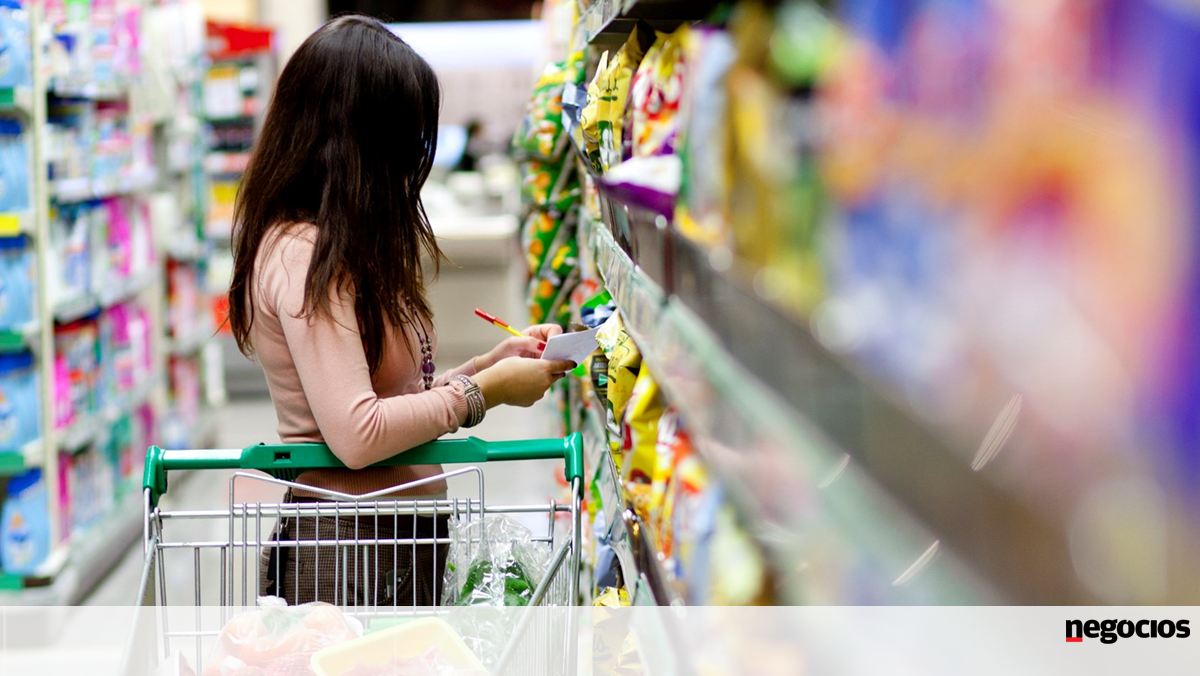a The food industry opened a “war” against supermarkets in Spainwith Promarca, which includes companies such as Coca-Cola, PepsiCo, Danone, Calvo, Heineken or Pescanova, accusing the distribution of unfair competition, because it takes up space on the shelves to replace its own brands.
According to the Economista newspaper. The organization accuses the country's six largest retail chains – Mercadona, Carrefour, Lidl, Aerosky, Dea and Alcampo (Auchan) – of removing 3,666 references from their shelves, while increasing their references by 1,818..
Only since the beginning of the year, according to a Spanish daily newspaper, Carrefour (which does not operate in Portugal), “expelled” the products of the PepsiCo group in North America, accusing it of unjustified price hikes (a decision that has since been reflected to a lesser extent in France). ; While Dea (owner of Minipreço in Portugal) has withdrawn Pascual milk from Bimbo and Mercadona. In business, the general director of Centromarca – the Portuguese association of branded product companies with 50 members owning more than 800 brands and an annual turnover on the national market of around €6,000 million – says he has no such “meticulous analysis” and concrete data. But she confirms this There is a “similar phenomenon”Despite the necessary differences in the market.
“Those are aspects that are here as well. Portugal is the country in Europe where private labels have achieved the greatest growth in terms of value and volume. Since the shelves are not flexible, there is less investment in display, which are shorter and more limited in variety, which penalizes brands and results in fewer choices for the consumer. In this sense, it is not much different from what is happening in Spain,” commented Pedro Pimentel.
A study by consultancy Kantar and analyzed in collaboration with Centromarca, released in October last year, concluded that although economic difficulties may call for the purchase of brands for distribution, so-called private labels do not “generate less diversity on shelf”. Not only does it lead to “less profitability for retailers and reduced customer loyalty.”
Pedro Pimentel stated that they have made customers – retailers – aware of the fact that their options to reduce the assortment and obtain a significant price differential are “market conditioning” and that the battle against competitive dynamics in the face of retail chains such as Mercadona or Lidl (whose offers focus on their own brands and which Transcendence of “traditional” brands ends up being “uneven for manufacturers”, but also for themselves and for consumers.
“In the medium/long term, everyone will lose: manufacturers will have less revenue, punishing innovation, while retailers will have less supply and consumers will have less choice.”finish.
In an interview with Negócios and Antena1 in November, Centromarca president Nuno Fernández Tomaz stated that Manufactured brands have to pay “almost a tax” to get a place on the shelves of large supermarketsThis puts them at a disadvantage compared to retailers' own brands, which, in their opinion, explains at least in part the large difference in price.
“When a manufacturer brand negotiates with a retail operator, it is negotiating with its largest customer, but at the same time, with its largest competitor. Why? Because the distribution operator is not only the main customer because it buys the manufacturer's brand products, as well as owning the manufacturer's brand Its own,” so when you want to get to the back of a department store “you have to pay what I call almost a tax to be there,” he criticizes.
Even Nuno Fernandez Tomaz said so There are “alcavalles” for which the manufacturer brands pay and which the private brands do not, with regard to, for example, product location or replacement.
The term is “disqualified”, in the words of the Director General of the Portuguese Association of Distribution Companies (APED), Gonçalo Lobo Xavier, because, in his opinion, “it stimulates a way of working that does not exist in this sector”. “In food retail, we need the manufacturer's own brands, because, first, they are what the consumer is looking for. If, given the price of the manufacturer's brand, you choose your own brands, that is your choice, a rational choice.” He said.

“Wannabe internet buff. Future teen idol. Hardcore zombie guru. Gamer. Avid creator. Entrepreneur. Bacon ninja.”

